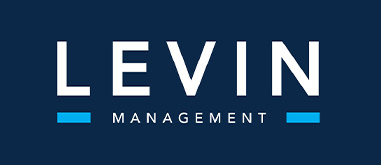Levin Expands Its Third-Party Services to Meet Growing Demand
By Joseph Lowry, SVP-Leasing and Acquisitions
A paradigm shift is underway in retail and in the retail real estate industry. One result is a surge in the demand for third-party services. In the last 28 months, our investment advisory practice took on over 21 new retail leasing and management assignments. We’re cheered by the strong economic momentum both nationally and regionally, but the flip side is that negotiations are getting tougher as investors look for that illusive ironclad deal. It’s a climate in which investors need guidance from leaders in commercial retail real estate. Here are some of our observations on the current state of this dynamic market, plus a quick look at how we’re assisting our investor clients.
Game Changers for Tenants: Online, Mergers and New Competitors
First, let’s look at the tenant side of retail real estate today. The evolution of online shopping undeniably has spurred changes for bricks-and-mortar stores. Merger activity is creating growth in scale for some retailers, but at the same time, consolidation is closing many locations. Preferred anchor categories, like supermarkets, are feeling the heat as discount and high-end grocers challenge their mid-level counterparts and drug, dollar and big-box department stores incorporate food into their inventory. Investors looking for shopping centers need to focus on the quality of every property they consider.
Top-Quality Retail Investment Property is a Scarce Commodity Today
Flight to quality is the hallmark of today’s commercial real estate market. Hundreds of millions of dollars in capital are chasing a limited supply of core institutional-grade properties. As a result, we’re working on more and more deals involving value-add or core-plus properties. And we’re finding that more buyers are willing to look at these asset classes than previously.
Six Factors That Must Be Analyzed Before Investing in a Commercial Property
Whether a property is institutional grade, value-add or core-plus, whether it’s broker-listed or an off-market deal, certain key factors need expert evaluation. These include an analysis of capital requirements, operating statements, rent rolls, debt levels, the condition of the property, and the state of the local market. Savvy investors are relying more and more on third-party providers who can bring a granular level of knowledge to the assessment process.
Retail real estate companies, like Levin, that maintain full in-house capabilities in leasing, accounting, property management, construction management and marketing are best positioned to assist investors in evaluating properties. Our years of hands-on experience in construction management is especially valuable in identifying physical conditions that represent future risk. Our regional focus is also of significant worth, providing strong brokerage connections and up-to-the-minute awareness of both listed – and unlisted – retail real estate investment opportunities.
Levin’s Support Extends Beyond Closing
After closing, many of our clients turn to us to develop and execute a successful operational strategy, assuring maximized property value throughout the entire investment cycle. In fact, a number of the assignments we’ve won in the past two years involve recently traded properties – for both new and repeat clients. These organizations look to us to establish, maintain and improve competitive positioning for their assets.
Today’s commercial retail real estate market holds tremendous opportunities for well-informed investors. Levin’s decades-long experience, encompassing every facet of the industry, makes us a valuable partner throughout the transaction phase and beyond.

